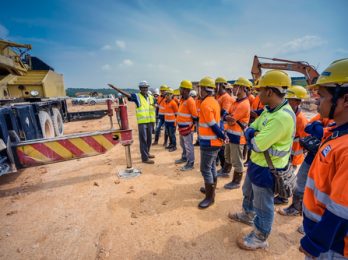Corporate language classes can be customized to suit your individual business needs. By allowing your business leaders and decision makers to customize our curriculum, we ensure that you will see more improvement than you would with traditional corporate language classes. Many of which cannot be customized. Our approach centers your actual employees, who will begin at different levels of understanding, and learn at different paces. All the while, remaining focused on your specific business objectives. Customize our business language courses to suit your specific industry, or tailored to your employees specific role in your company. For example, our curriculum can be modified to highlight specific professional skills like business writing or public speaking. We have talked a lot of those customizations, but do you know about concurrent language courses?
Read more
Corporate Language Classes: Concurrent Spanish and English






